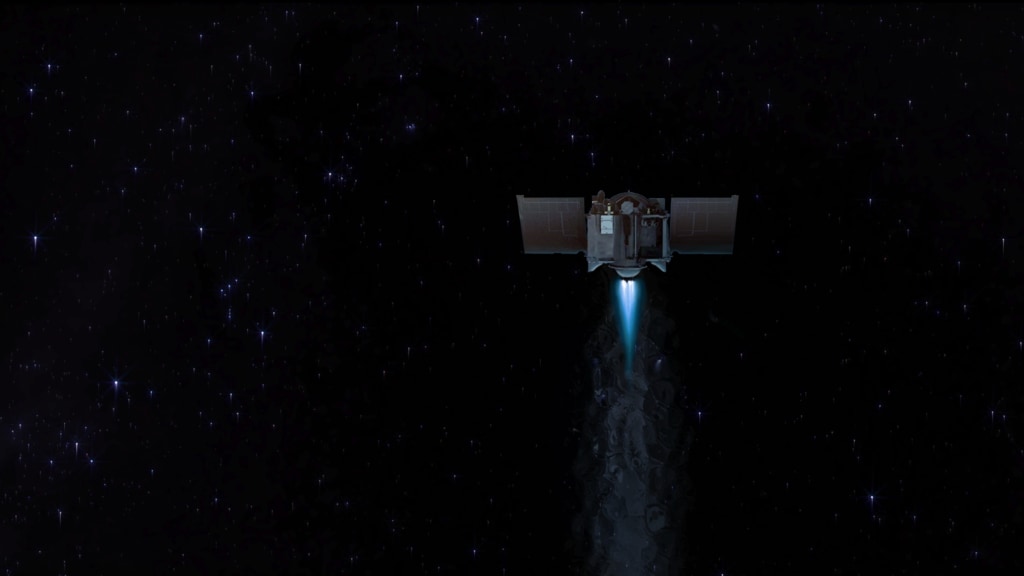To Bennu And Back

A NASA spacecraft speeds toward a rendezvous with an asteroid.
NASA's first asteroid sampling mission launched into space on September 8, 2016, beginning a journey that could revolutionize our understanding of the early solar system. The OSIRIS-REx spacecraft is designed to rendezvous with, study, and return a sample of the asteroid Bennu to Earth. Asteroids like Bennu are remnants from the formation of our solar system more than 4.5 billion years ago. Scientists suspect that asteroids may have been a source of the water and organic molecules for the early Earth and other planetary bodies—and an uncontaminated asteroid sample from a known source would enable precise analyses. In 2018, OSIRIS-REx will approach Bennu and begin an intricate dance with the asteroid, mapping and studying Bennu in preparation for sample collection. In 2020, the spacecraft will perform a daring maneuver in which its 11-foot arm will reach out and perform a five-second "high-five" to stir up surface material. At least 2 ounces of small rocks and dust will be collected and placed in a sample return container that will be returned to Earth for study in 2023. Watch the video to learn more.
Follow the OSIRIS-REx spacecraft on its journey to asteroid Bennu and back in this animated video showing an overview of the mission.

Asteroid Bennu completes an orbit around the sun every 436 days and was first observed in 1999.

The OSIRIS-REx spacecraft will collect a sample from Bennu using a mechanical arm to touch the asteroid's surface.

A capsule carrying the sample from Bennu will detach from the spacecraft and return to Earth in 2023.
For More Information
See NASA.gov
Credits
Please give credit for this item to:
NASA's Goddard Space Flight Center
-
Producer
- Katrina Jackson (USRA)
-
Video editor
- Katrina Jackson (USRA)
-
Narrator
- Katrina Jackson (USRA)
-
Animators
- Walt Feimer (HTSI)
- Lisa Poje (USRA)
- Adriana Manrique Gutierrez (USRA)
- Kel Elkins (USRA)
-
Writer
- Nancy Neal-Jones (NASA/GSFC)
Release date
This page was originally published on Thursday, September 15, 2016.
This page was last updated on Wednesday, May 3, 2023 at 1:48 PM EDT.

![To Bennu and BackMusic credits: "Defenders of the Earth" and "Finding Gaia" by Daniel Jay Nielson [ASCAP]; Atmosphere Music Ltd PRS; Volta Music; Killer Tracks Production Music](/vis/a010000/a012300/a012360/ToBennuAndBack_thumbnail.jpg)